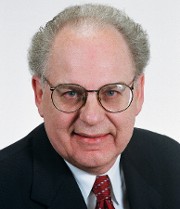 Whether you call it supply chain, materials management, materials resources or logistics, the management of the supply chain functions at your healthcare organization shouldn’t be decentralized, outsourced to your department heads or left to chance. I can make this declaration based of my extensive research that shows that no hospital, system or IDN is really in charge of all of their supply chain functions. This isn’t the best way or even the smartest way to capture all of your supply chain opportunities in the new healthcare economy!
Whether you call it supply chain, materials management, materials resources or logistics, the management of the supply chain functions at your healthcare organization shouldn’t be decentralized, outsourced to your department heads or left to chance. I can make this declaration based of my extensive research that shows that no hospital, system or IDN is really in charge of all of their supply chain functions. This isn’t the best way or even the smartest way to capture all of your supply chain opportunities in the new healthcare economy!
One of the reasons for this phenomenon is that there appears to be different interpretations of what of supply chain management is all about. Most healthcare organizations define their supply chain management as only the activities related to supply, processing and distribution, but it is much much more. Charles E. Housley, healthcare supply chain guru of the 70s and 80s, described supply chain management as encompassing “anything that moves and isn’t alive”. In other words, Housely considered, as I do, the breath, depth and scope of supply chain management to be — endless.
For instance, I have been championing for some time that supply chain management should be responsible for waste management at healthcare organizations. Why? Waste management is really nothing more than products, packaging, paper and cardboard that is at the end of their life cycle. Who better to manage their hospital’s recycling program than the people who originally bought and distributed these supplies in the first place? Then and only then, can your supply chain staff begin to understand and internalize the impact of their buying decisions on your healthcare environment. That’s why I don’t believe that this supply chain function (or any other material related function) should be outsourced to another department head.
How do you know it is a supply chain related function? The best test I know of to define a material related function is “if you buy it” then it should be considered a supply chain management responsibility, and no one else’s responsibility: All supplies and purchase services should easily fit into this category.
Now that you know what a supply chain function is, I would recommend a comprehensive audit to determine what your supply chain responsibility should be at your healthcare organization. Once this audit is completed I would then campaign to take on the responsibility for any and all supply chain functions that are now outsourced to other department heads. This way you will not only assume your rightful supply chain responsibilities, but you will be in a much better position to manage, control and reduce all of your healthcare organization’s supply chain costs now that they are bundled under one department.
Robert T. Yokl
Chief Value Strategist
Strategic Value Analysis® In Healthcare

Be the first to comment on "Yokl: Who’s in Charge of Supply Chain Management?"